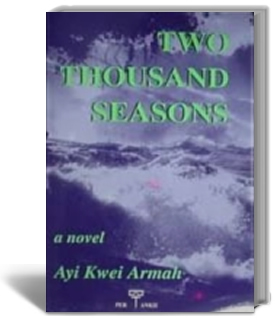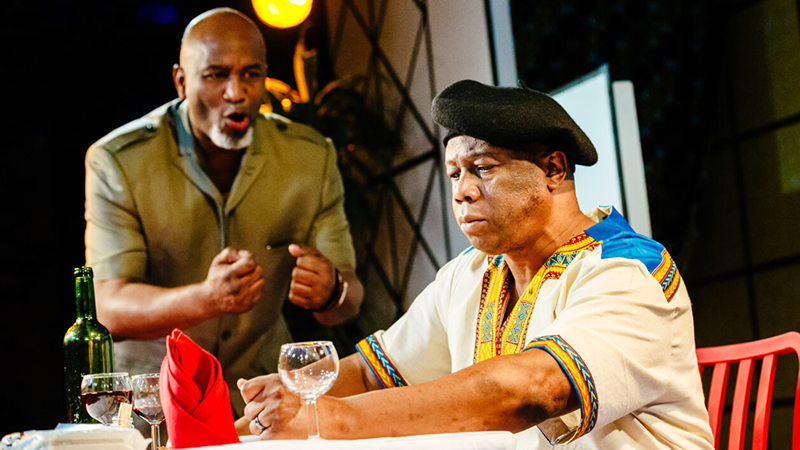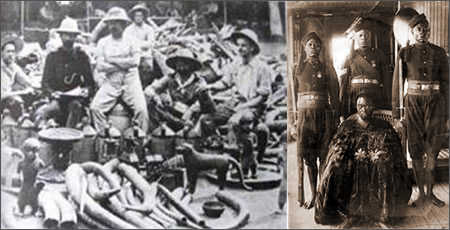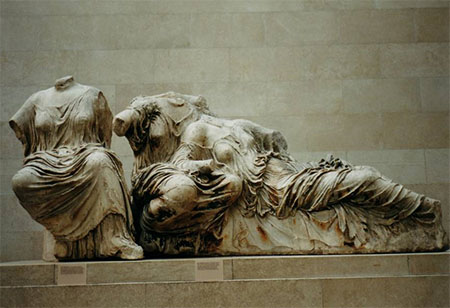“Our way is reciprocity. The way is wholeness. Our way knows no oppression. The way destroys oppression.”

When first reading the opening chapters of Two Thousand Seasons you are transported to what feels like a session under the baobob tree with an elder. Initially the style of this book does not feel as fluid as Ayi Kwei Armah’s other works. The immediate accessibility of The Healers and Osirus Rising is missing and as a result it feels dense, characterisations compressed all while the flow which is forever fluid, reveals a tone both heavy and where appropriate, sombre.
Yet perseverance rewards. As the text unfolds a literary act of remembrance sheds light on events cast thousand of seasons ago. Within moments years melt away and decades become yesterday. Such is the vividness of the manner in which author Ayi Kwei Armah shares with us the history of the zombie askari and those that would be servant living to fight their own people and die for the slave owning god. The sweetness of the opening act of resistance, reminisce of an age when women ruled begs us to consider what if? What if we returned to the way?
Yet the conquest of the African described in the opening of this book is not just of body, but of spirit, a lesson to be learnt and abused by those yet to come. You see after turning his pen on the trans-Saharan phase of Maafa, Ayi Kwei-Armah then focuses on the trans-Atlantic predators, those for whom the acquisition of profit is God. Treachery and savage barbarity is exposed as a disease of death passed on to the ignorant, red eyed and weak willed amongst Africans willing to help assist evil with the subjugation of our own family.
It is important to note that this is not a romantic story where Africans are portrayed as saintly heroes, our collaborators are also exposed, Ayi Kwei-Armah’s works shows it is not enough to point the finger at the ‘white destroyers’ without recognising, identifying and ultimately shaming the treacherous Africans who collude against their own.
Yet after reading this book it becomes clear that the story we have been told about how ‘Africans sold Africans’ into slavery is far more nuanced, far more complex than this simple moniker pretends. Without understanding the cultural and spiritual interactions between the people and those that ascended through barbarity to rule and then oppress and ultimately betray them, it is impossible to comprehend the history of African enslavement and the history of self loathing and treachery that has continued to lead to Africa being dominated by an incompetent profligate political and now pseudo-spiritual elite.
The reading of this book should be mandatory for all students of world history. It is difficult to imagine a better method of removing the veil of ignorance surrounding Maafa that does not involve the recitation of this essential seminal piece of work.


Two Thousand Seasons by Ayi Kwei-Armah
Yet perseverance rewards. As the text unfolds a literary act of remembrance sheds light on events cast thousand of seasons ago. Within moments years melt away and decades become yesterday. Such is the vividness of the manner in which author Ayi Kwei Armah shares with us the history of the zombie askari and those that would be servant living to fight their own people and die for the slave owning god. The sweetness of the opening act of resistance, reminisce of an age when women ruled begs us to consider what if? What if we returned to the way?
Yet the conquest of the African described in the opening of this book is not just of body, but of spirit, a lesson to be learnt and abused by those yet to come. You see after turning his pen on the trans-Saharan phase of Maafa, Ayi Kwei-Armah then focuses on the trans-Atlantic predators, those for whom the acquisition of profit is God. Treachery and savage barbarity is exposed as a disease of death passed on to the ignorant, red eyed and weak willed amongst Africans willing to help assist evil with the subjugation of our own family.
It is important to note that this is not a romantic story where Africans are portrayed as saintly heroes, our collaborators are also exposed, Ayi Kwei-Armah’s works shows it is not enough to point the finger at the ‘white destroyers’ without recognising, identifying and ultimately shaming the treacherous Africans who collude against their own.
Yet after reading this book it becomes clear that the story we have been told about how ‘Africans sold Africans’ into slavery is far more nuanced, far more complex than this simple moniker pretends. Without understanding the cultural and spiritual interactions between the people and those that ascended through barbarity to rule and then oppress and ultimately betray them, it is impossible to comprehend the history of African enslavement and the history of self loathing and treachery that has continued to lead to Africa being dominated by an incompetent profligate political and now pseudo-spiritual elite.
The reading of this book should be mandatory for all students of world history. It is difficult to imagine a better method of removing the veil of ignorance surrounding Maafa that does not involve the recitation of this essential seminal piece of work.






Get involved and help change our world